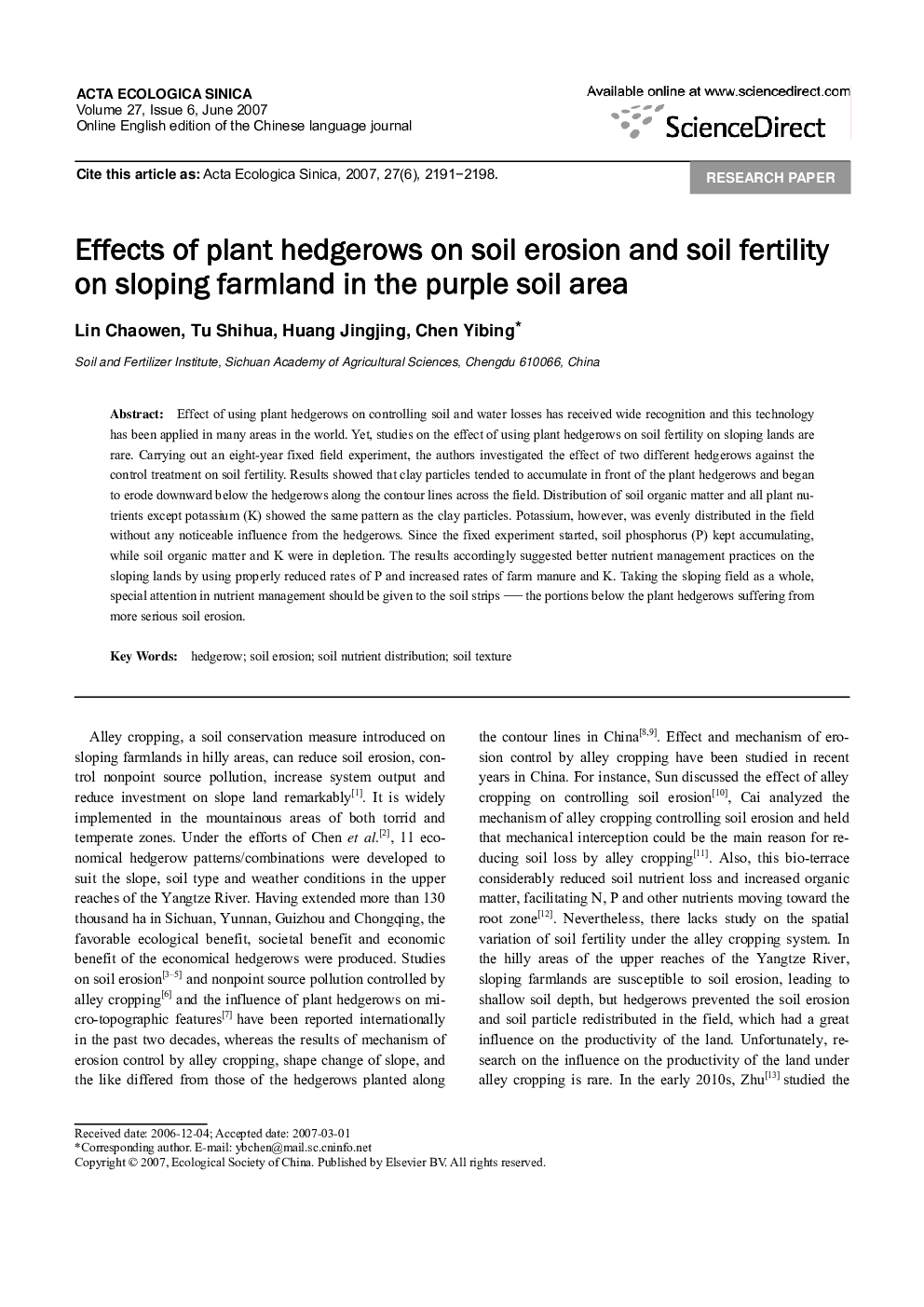| Article ID | Journal | Published Year | Pages | File Type |
|---|---|---|---|---|
| 4380492 | Acta Ecologica Sinica | 2007 | 8 Pages |
Effect of using plant hedgerows on controlling soil and water losses has received wide recognition and this technology has been applied in many areas in the world. Yet, studies on the effect of using plant hedgerows on soil fertility on sloping lands are rare. Carrying out an eight-year fixed field experiment, the authors investigated the effect of two different hedgerows against the control treatment on soil fertility. Results showed that clay particles tended to accumulate in front of the plant hedgerows and began to erode downward below the hedgerows along the contour lines across the field. Distribution of soil organic matter and all plant nutrients except potassium (K) showed the same pattern as the clay particles. Potassium, however, was evenly distributed in the field without any noticeable influence from the hedgerows. Since the fixed experiment started, soil phosphorus (P) kept accumulating, while soil organic matter and K were in depletion. The results accordingly suggested better nutrient management practices on the sloping lands by using properly reduced rates of P and increased rates of farm manure and K. Taking the sloping field as a whole, special attention in nutrient management should be given to the soil strips —the portions below the plant hedgerows suffering from more serious soil erosion.
